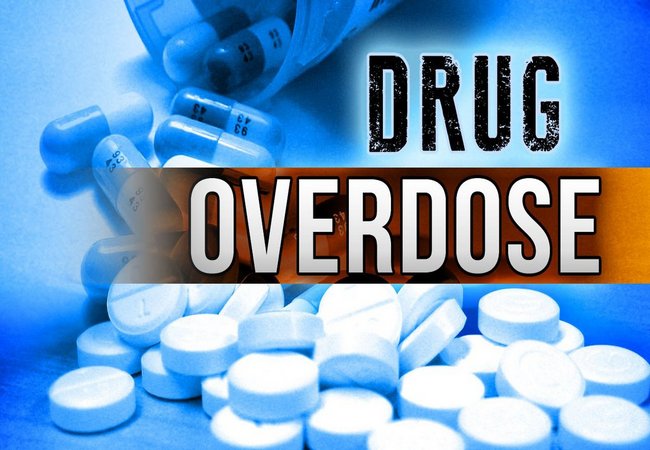Definition of Drug Overdose:
A drug overdose happens when someone take too much of a drug, whether it is an illegal substance, and over the counter medication, or a prescription drug. An overdose can lead to serious medical symptoms, including death. A drug overdose is the accidental or intentional use of a drug or medicine in an amount that is higher than is normally used.

Causes of Drug Overdose:
1. Acute alcohol intoxication:
- Ethyl alcohol,
- Methanol poisoning,
- Ethylene glycol poisoning.
2. Opioid overdose
3. Among sedative-hypnotics
- Barbiturate overdose,
- Benzodiazepine overdose,
- Uncategorized sedative-hypnotics: Ethchlorvynol (Placidyl), GHB, Glutethimide (Doriden), Methaqualone, Ketamine.
4. Among Stimulants:
- Cocaine overdose,
- Amphetamine overdose,
- Methamphetamine.
5. Among Tobacco: Nicotine
6. Among Poly drug use: Drug “cocktails'” (Speedballs)
7. Medications:
- Aspirin poisoning,
- Acetaminophen poisoning (Alone or mixed with Oxycodone),
- Paracetamol toxicity,
- Tricyclic antidepressant overdose,
- Vitamin poisoning.
8. Pesticide poisoning:
- Organophosphate poisoning,
- DDT.
Clinical Features or Sign and Symptoms of Drug Overdose:
Death Drug overdose symptoms vary widely depending on the specific drug used, but may include:
- Abnormal pupil size,
- Agitation,
- Convulsions,
- Death,
- Delusional or paranoid behavior,
- Difficulty breathing,
- Drowsiness,
- Hallucinations,
- Nausea and vomiting
- Nonreactive pupils (pupils that do not change size when exposed to light),
- Staggering or unsteady gait (ataxia),
- Sweating or extremely dry, hot skin,
- Tremors,
- Unconsciousness (coma),
- Violent or aggressive behavior.
Drug withdrawal symptoms also vary widely depending on the specific drug used, but may include:
- Abdominal cramping,
- Agitation,
- Cold sweat,
- Convulsions,
- Delusions,
- Depression,
- Diarrhea,
- Hallucinations,
- Nausea and vomiting,
- Restlessness,
- Shaking.
Complications of Drug Overdose:
Complications may arise due to drugs overdose:
- Hypothermia,
- Shock,
- Gastric content aspiration,
- Hypotension,
- Cardiac arrhythmia,
- Therapeutic monitoring of drug levels required,
- Acute confessional state,
- Respiratory failure type 2,
- Reduced level of consciousness.
Nice to Know about Drug Overdose:
The tests and treatment given depend on what the person took and their medical needs. There are a number of possible tests and treatments. Some treatments need to be given soon after an overdose to prevent serious harm. It is important to seek medical advice as soon as possible, even if there are no symptoms.
- Blood tests, ECG (heart rhythm trace).
- Intra venous fluids (into the vein) or medication – usually to improve low blood pressure.
- Observation in hospital and monitoring of the person’s vital signs and heart rhythms (if necessary).
- Removing the substance from the body (such as using activated charcoal, which binds to the drug so the body cannot absorb it – this must be given within an hour of substance ingestion), Charcoal is rarely given and works only on certain types of poisons.
- An antidote may be given to reverse the effect of the toxic substance (for some drugs).
- Admission to hospital for further treatment.

Maria Khatun Mona is a Founder and Editor of Nursing Exercise Blog. She is a Nursing and Midwifery Expert. Currently she is working as a Registered Nurse at Evercare Hospital, Dhaka, Bangladesh. She has great passion in writing different articles on Nursing and Midwifery. Mail her at “maria.mona023@gmail.com”
